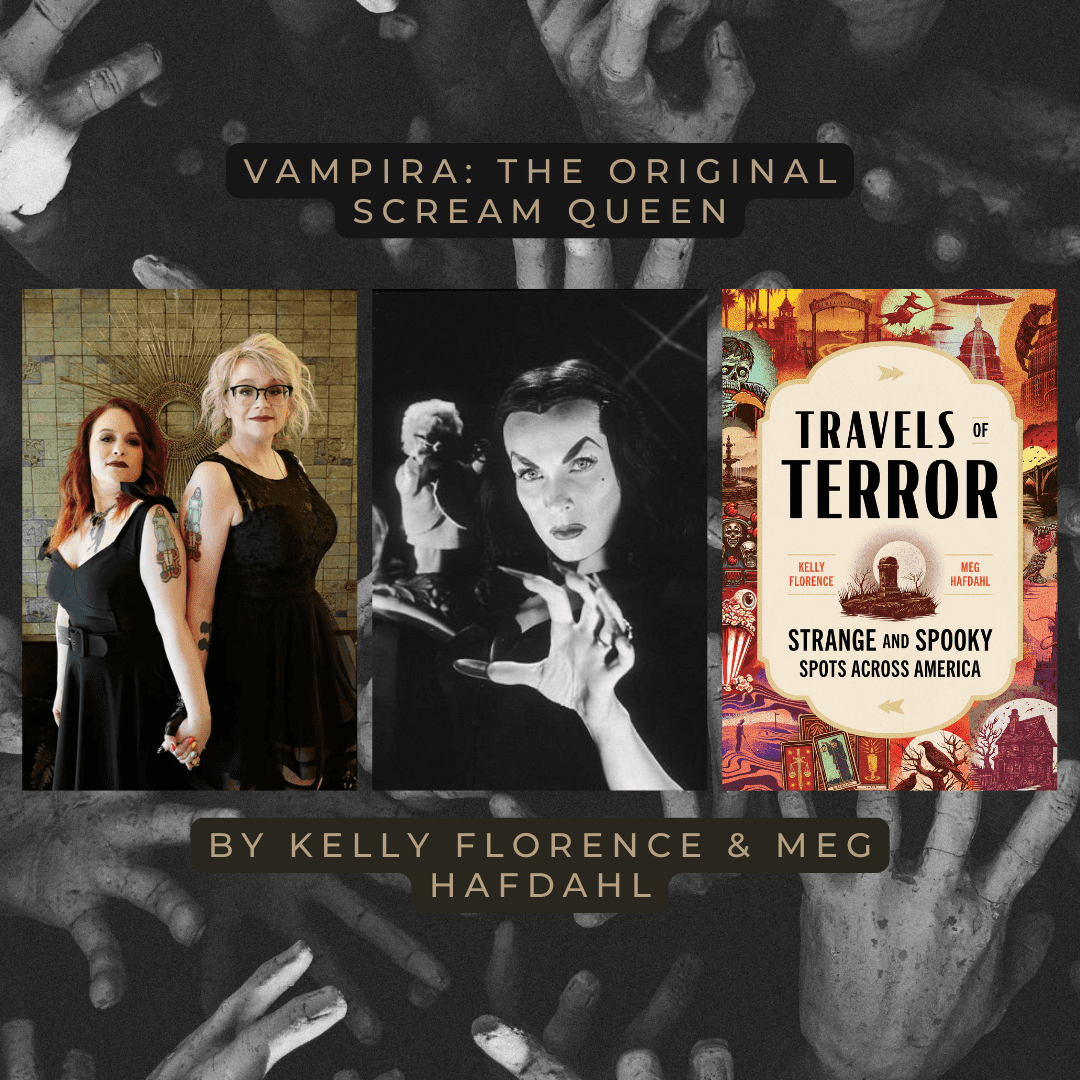
Vampira: The Original Scream Queen
By Kelly Florence & Meg Hafdahl
“Bring on the empty hearses that I may people them with my enemies.
Isn’t that, after all, why people commit autobiography? To aggrandize themselves and to destroy their enemies?
In any case, of course, the enemy shall be felled quite accidentally as the flailing sword of truth decapitates them. Now, all nonsense aside, you know I have no enemies. Only discarded lovers, and they have their memories.”
-Maila Nurmi
Ever since Kelly was little, her grandparents told her about the legendary Vampira, (pronounced Vamp-eera in the Finnish dialect). She was a Finnish American who had made it onto Broadway, into Hollywood, and had her own hosting gig introducing horror movies on a television station in Los Angeles. Her pet tarantula on the late-night gig was named Rollo and Kelly’s grandparents named their cat the same. While there are numerous stories and rumors surrounding Vampira and her life, we appreciated reading two biographies about her. Her name was Maila Nurmi, and she was a queen.
Growing up as the daughter of Finnish immigrants, Maila understood the importance of work ethic, public speaking, and passion. Her father, a journalist and devout religious man, raised his children to appreciate their legacy and encouraged them to work for the things they cared about. Moving around the country with her family, Maila spent time in Duluth, Minnesota (where Meg spent her junior high and high school years and where Kelly currently lives) as well as many cities across the country. While she didn’t pursue a career her father may have been proud of, she had the drive and tenacity to become a legend, albeit one most aren’t aware of.
We encourage you to read Glamour Ghoul: The Passions and Pain of the Real Vampira, Maila Nurmi (2021) by Sandra Niemi (Maila’s niece!) and Vampira: Dark Goddess of Horror (2014) by W. Scott Poole. Here are our top takeaways about this fascinating woman.
(more…)














